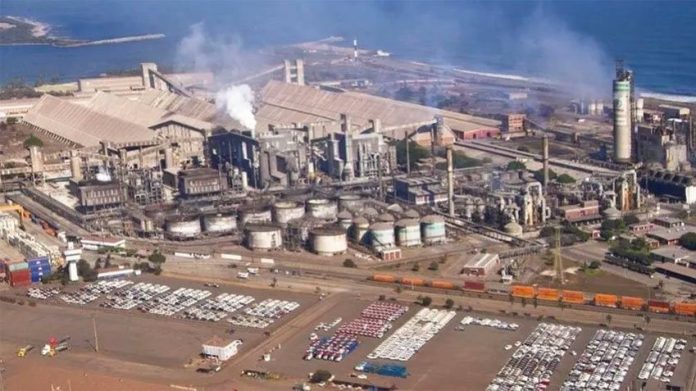Mexican and United States authorities are investigating overpayments of hundreds of millions of dollars in the state oil company’s purchase of several fertilizer plants and a phosphorite reserve during the presidency of Enrique Peña Nieto.
The investigations have implicated high-level officials in the previous administration for bribery, including the former president himself.
The plant that has received the most attention is the Agro Nitrogenadas plant in Pajaritos, Veracruz, which was purchased by Pemex from steelmaker Altos Hornos in 2014 for US $475 million, which the current government says was more than nine times the plant’s value.
Both Altos Hornos CEO Alonso Alcira and then-Pemex CEO Emilio Lozoya are facing criminal charges for the transaction.
But at least three other facilities purchased under Peña Nieto have also fallen into disuse: two fertilizer plants in Lázaro Cárdenas, Michoacán, and Camargo, Chihuahua, and a phosphorite reserve in Baja California Sur.
The Lázaro Cárdenas plant was owned by Fertinal, a fertilizer company that owed US $264 million in debt in 2015, when Pemex purchased the company for US $635 million. According to a sworn statement by a witness made to investigators at the U.S. Department of Justice, Peña Nieto received a bribe from Fertinal’s majority shareholder Fabio Massimo Covarrubias in exchange for approving the overpayment.
Another investigation by Mexican authorities has targeted Lozoya and former energy secretary Pedro Joaquín Coldwell for allegedly receiving bribes relating to the purchase of Fertinal.
According to President López Obrador, both the Veracruz and the Michoacán plants were once owned by Fertimex, a state-owned fertilizer company that was privatized during the presidency of Carlos Salinas de Gortari.
“Let’s remember that the state had a company called Fertimex, which produced all the fertilizer,” he said in his morning press conference on Wednesday. “We became self-sufficient in the production of fertilizer. With the privatization started by Carlos Salinas, Fertimex was dismantled.”
During the presidency of Peña Nieto, Pemex Fertilizers, a subsidiary of the state oil company, began buying back former Fertimex facilities as part of a supposed effort to promote domestic fertilizer production and reduce the dependence on imports. But in the first two years of the venture, fertilizer production in Mexico declined even further.
López Obrador promised there will be a thorough investigation of damage done to the public purse by officials in the former government.
“These are losses for the government, for the treasury,” he said. “This money belongs to all Mexicans, and we are obligated to protect the budget.”
Both Peña Nieto and Coldwell denied the accusations. “I categorically reject these false accusations against me . . . . They are lying, of course,” said the former president.
Source: Reforma (sp), El Universal (sp)
